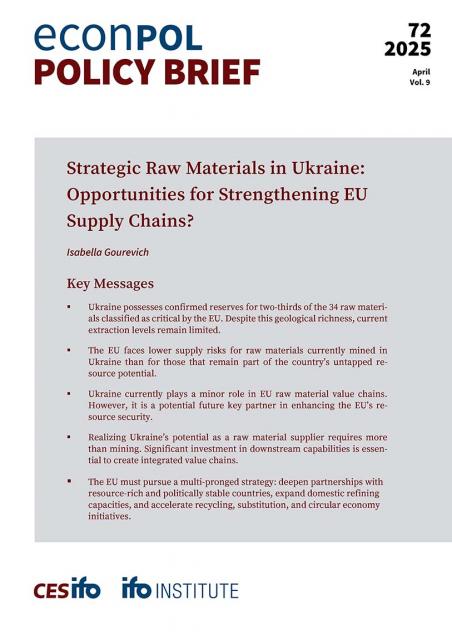News Archive

Daniel Gros: “Policymakers Should Consider High Public Debt Ratios as a Risk”
|
EconPol Annual Conference
| News
Daniel Gros, Distinguished Fellow at the Centre for European Policy Studies, will speak about the dangers of high public debt in his afternoon keynote speech at the EconPol Annual conference. He cautions countries with high debt ratios not to rely on low interest rates to make their (Covid-19) debt sustainable. His speech is based on a most recent EconPol Policy Brief that will be released on the day of the conference.

The Dangers of High Public Debt in an Uncertain World: Post-Covid-19 Dangers for Public Finance
|
Policy Brief
| News
In this EconPol Policy Brief Daniel Gros cautions countries with high debt ratios not to simply rely on low interest rates to make their (Covid-19) debt sustainable. Now that the health emergency is subsiding, governments have to chart a new course for public finance. The starting point is a higher level of public debt. However, high debt ratios represent a danger, even when interest rates are low.

All for One and One for Green Energy: Community Renewable Investments in Europe
|
Policy Brief
| News
Community renewable energy (CRE) projects are gaining momentum in Europe and could play a significant role in reaching the EU’s accelerated decarbonisation goals. This is a key message that can be derived from this EconPol Policy Brief. Based on a survey across 31 European countries the authors find a high interest in community renewable investments, especially in countries where this model is not yet very common. However, the design of the project matters. The study finds that certain attributes lead to higher incentives for citizen investment.

EconPol Annual Conference 2021| The State of Fiscal Resilience – How Prepared is Europe for Future Crises?| 13 - 14 October
|
EconPol Annual Conference
| News
The European Union’s recovery plan that has been adopted in response to the coronavirus crisis is a game changer in terms of European economic policy integration: NextGenerationEU is larger than any other stimulus package passed by the EU in previous crises. Together with the EU’s long-term budget a total of EUR 1.8 trillion will be spent to boost and modernize Europe’s economy with major priorities set in the areas of digitalization and climate change.

The EMU Experience of Portugal: Current Account Targeting Hypothesis versus Twin Deficit Hypothesis
|
Working Paper
| News
This Working Papaer analyses the relation between Portugal’s government budget balance and current account balance from 1999 – when Portugal joined the Euro – until 2019. The study arrives at three main conclusions: First, a tightening of fiscal policy improves the external balance of the Portuguese economy, although not substantially. Second, the share of public consumption on GDP has a negative impact on the current account balance. This means, that any policy that stimulates economic activity leading to an increase in public consumption needs to be applied carefully.
